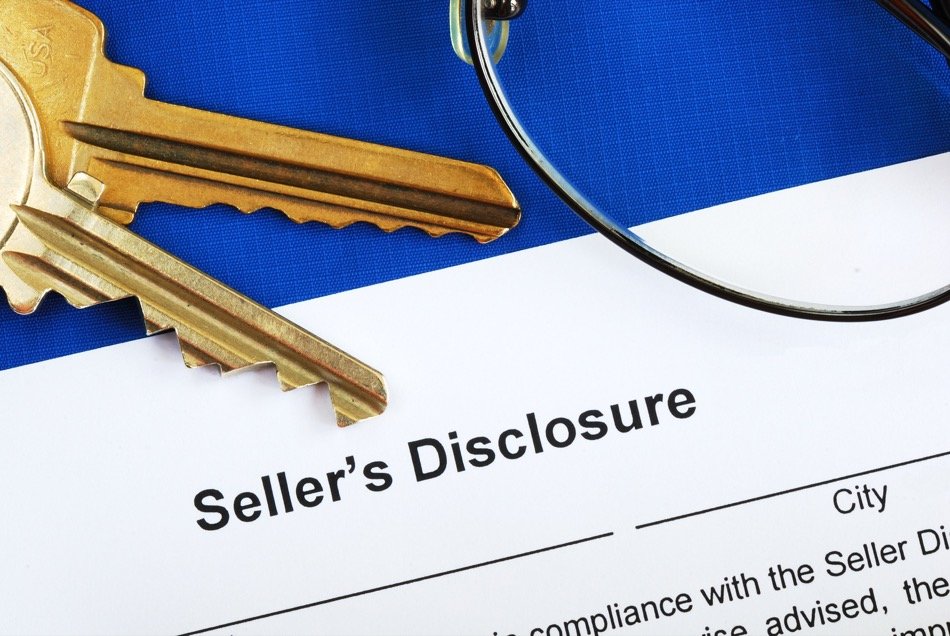
When you’re buying or selling a home, transparency is crucial. One of the key documents in ensuring this transparency is the seller’s disclosure. But what exactly is a seller’s disclosure, and why is it so important in a real estate transaction? This blog will dive into the details, helping both buyers and sellers understand its significance.
What is a Seller’s Disclosure?
A seller’s disclosure is a legal document that a property seller is required to provide to potential buyers. This document outlines known issues or defects with the property that could affect its value or the buyer’s decision to purchase it. The goal of the seller’s disclosure is to ensure that the buyer is fully informed about the condition of the property before finalizing the sale.
Why is a Seller’s Disclosure Important?
Protects the Buyer: The disclosure provides critical information that helps the buyer make an informed decision. It details any issues with the property, such as structural problems, water damage, or pest infestations, allowing the buyer to assess whether these are deal-breakers or if they are willing to address them after the purchase.
Protects the Seller: By providing a seller’s disclosure, the seller protects themselves from future legal claims. If a buyer discovers an issue after the sale that was disclosed in the document, the seller is generally not held liable. This transparency helps to prevent disputes and legal complications down the line.
Facilitates a Smooth Transaction: A well-prepared seller’s disclosure can lead to a smoother transaction. When both parties are aware of the property’s condition upfront, it reduces the likelihood of surprises that could derail the sale.
What is Typically Included in a Seller’s Disclosure?
A seller’s disclosure may vary depending on the state or country, but generally, it covers the following areas:
Structural Issues: Information about the foundation, roof, walls, and any structural repairs or damage.
Water Damage: Details about past or present water leaks, flooding, or mold.
Pest Infestation: Any history of termites, rodents, or other pest issues.
Environmental Hazards: Disclosure of potential hazards such as lead paint, asbestos, or radon gas.
Electrical and Plumbing Systems: Condition and history of the property’s electrical wiring and plumbing.
HVAC Systems: Details on the heating, ventilation, and air conditioning systems.
Legal Issues: Any disputes or liens on the property, zoning violations, or encroachments.
Seller’s Disclosure and Home Inspections
While a seller’s disclosure provides valuable information, it should not replace a professional home inspection. Buyers should still conduct an independent inspection to verify the property’s condition. The disclosure can guide the inspector on specific areas to focus on, but it’s not a substitute for a thorough evaluation.
Consequences of Failing to Provide a Seller’s Disclosure
Failure to provide a seller’s disclosure, or intentionally withholding information, can lead to serious legal repercussions. Buyers who discover undisclosed defects after the sale may have the right to sue the seller for damages. This can result in costly litigation, loss of reputation, and potential financial liability.
The Role of a Real Estate Agent in Seller’s Disclosures
A knowledgeable real estate agent plays a vital role in the seller’s disclosure process. Here’s how:
Guidance and Expertise: Real estate agents help sellers accurately complete the disclosure form, ensuring that all known issues are properly documented. They bring experience and understanding of what needs to be disclosed, helping sellers avoid accidental omissions that could lead to legal trouble.
Communication: Agents act as intermediaries, clearly communicating the details of the disclosure to potential buyers. They ensure that buyers understand the significance of the information provided, which helps prevent misunderstandings or disputes later on.
Negotiation Assistance: If issues arise from the disclosure, a real estate agent can assist in negotiating repairs or price adjustments. Their expertise can be invaluable in finding solutions that satisfy both parties, keeping the transaction on track.
Legal Compliance: Real estate agents ensure that the disclosure meets all legal requirements specific to the state or region. They keep up-to-date with the latest regulations, ensuring that the seller’s disclosure is thorough and compliant.
A seller’s disclosure is a critical component of any real estate transaction. It not only protects both the buyer and seller but also ensures a smoother and more transparent sale process. Whether you’re buying or selling a property, understanding the importance and contents of a seller’s disclosure is essential. Make sure to review this document carefully and seek professional advice if needed, to avoid potential pitfalls and ensure a successful transaction
Question & Answer (Q & A)
Q1: What happens if a seller doesn’t provide a disclosure?
A1: If a seller fails to provide a disclosure, it can lead to serious legal consequences. The buyer may have the right to cancel the contract, or worse, sue the seller for damages if undisclosed issues are discovered after the sale.
Q2: Can a seller be held liable for issues not included in the disclosure?
A2: Yes, if a seller knowingly omits or misrepresents information, they can be held liable for any resulting damages. This is why it’s crucial for sellers to be honest and thorough when completing the disclosure form.
Q3: Are all sellers required to provide a disclosure?
A3: Most sellers are required to provide a disclosure, but there are some exceptions. For example, foreclosures, estate sales, and certain types of property transfers may be exempt from disclosure requirements. However, this varies by state or region.
Q4: What should a buyer do if they find an issue after reviewing the disclosure?
A4: If a buyer discovers an issue after reviewing the disclosure, they should discuss it with their real estate agent. The agent can help negotiate repairs or a price reduction with the seller, or, if necessary, the buyer may choose to walk away from the deal.
Q5: Can a buyer sue a seller after the sale if a problem arises that wasn’t disclosed?
A5: Yes, if the buyer can prove that the seller knew about the issue and failed to disclose it, they may have grounds to sue for damages. This is why full and honest disclosure is essential for sellers.
Q6: How detailed should a seller’s disclosure be?
A6: The disclosure should be as detailed as possible. Sellers should include any known issues, even if they seem minor. It’s better to disclose too much information than too little, as failing to disclose important details can lead to legal trouble.
Q7: What is the role of the real estate agent in the disclosure process?
A7: The real estate agent helps the seller accurately complete the disclosure form, ensures that all required information is included, and assists in communicating the details to the buyer. They also help navigate any issues that arise from the disclosure.
Q8: Do seller disclosures vary by state?
A8: Yes, seller disclosure requirements can vary significantly by state or region. It’s important to consult with a local real estate agent or attorney to understand the specific requirements in your area.
Q9: Can a seller update the disclosure if they discover a new issue after providing it?
A9: Yes, if a seller discovers a new issue after providing the disclosure, they should update the document and inform the buyer as soon as possible. Transparency is key to avoiding disputes later in the process.
Q10: Is a seller’s disclosure the same as a home inspection?
A10: No, a seller’s disclosure is not the same as a home inspection. The disclosure is based on the seller’s knowledge of the property, while a home inspection is conducted by a professional who assesses the property’s condition independently. Both are important in the real estate transaction process.
Q11: Can a buyer negotiate the price based on the seller’s disclosure?
A11: Yes, if the seller’s disclosure reveals issues with the property, the buyer can negotiate the purchase price or request repairs before closing. A real estate agent can assist in these negotiations to reach an agreement that satisfies both parties.
Q12: What should a seller do if they’re unsure about an issue with the property?
A12: If a seller is unsure about an issue, it’s best to disclose it and note the uncertainty. Being transparent about potential problems, even if not confirmed, can help avoid legal disputes later on. A real estate agent or attorney can also provide guidance.
Q13: How does a seller’s disclosure affect the appraisal process?
A13: While the seller’s disclosure doesn’t directly impact the appraisal, it can influence the buyer’s perception of the property’s value. If significant issues are disclosed, the appraiser may consider them when assessing the property, potentially affecting the final appraisal value.
Q14: Are sellers required to disclose past repairs?
A14: Yes, sellers are generally required to disclose past repairs, especially if they were made to address significant issues like structural damage, plumbing problems, or electrical faults. This information is crucial for buyers to understand the property’s history and condition.
Q15: Can a seller’s disclosure include information about neighborhood issues?
A15: In some cases, sellers may disclose information about neighborhood issues, such as noise, crime, or disputes with neighbors. While not always required, providing this information can help build trust with potential buyers and avoid future conflicts.
.







